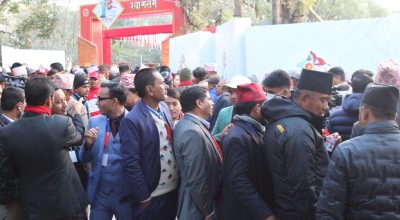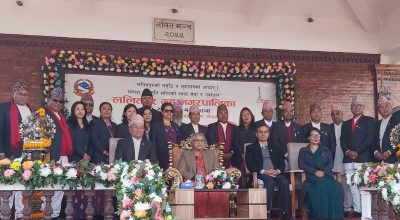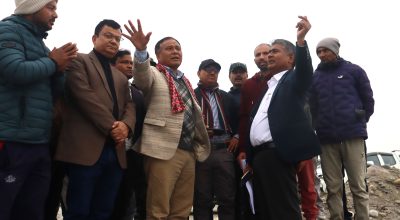
Kathmandu, Dec 7: A member of the National Assembly (NA), Nepal, Dr Bimala Rai Paudyal, had thought that a lot could be done in the field of law making and addressing the people’s voices at the time of taking the responsibility as NA member with enthusiasm six years ago.
She has experienced that the high-spirit of making laws that she had while taking the responsibility as NA member has now sapped as she has not been able to do much despite her best possible efforts.
Paudyal was appointed as the member of the National Planning Commission at a time when was serving at the Swiss Embassy, Lalitpur, and was later appointed Personal Secretary of the then President Bidya Devi Bhandari.
She holds PhD in Development Studies from International Institute of Social Studies of Netherlands. Hailing from Bhojpur, she has been raising strong voice in the upper house on the issues of violence against women, education, good governance and nationality.
Although the government and parliament were active in making civil code related to fundamental rights in the first two years, no eagerness was seen in the parliament to formulate laws in recent period, she shared.
Her six-year term in NA is expiring on coming March 3. Also the former Foreign Minister, Paudyal is not happy after formulation of laws was affected due to split of the then Nepal Communist Party, dissolution of parliament and unhealthy politics.
Lawmaker Paudyal believes that during her six years’ tenure as the Upper House member she has fulfilled a lawmaker’s expected role of keeping a watch on the government’s works and voicing the people’s problems and concerns in the parliament in a satisfactory way.
Asked whether the parliament itself cannot be proactive and urge the government to bring bills and discuss them, she said, “I have heard the National Assembly Chair Ganesh Prasad Timilsina calling several ministers to his chamber and telling them to promptly introduce important bills in parliament.
“Even at present the presentation and endorsement of the bills related to the civil servants, adjustment of the province police, school education and universities have been delayed, and the government itself should be active in introducing these bills,” she added.
Dr Paudyal suggested division of responsibility between the House of Representatives and the National Assembly on matters of lawmaking. She viewed that the Upper House, which has the representatives from the intellectual and various communities elected by the people’s representatives of the province and local levels, should be made more used to on bills and policies related to federalism and inclusion.
“If there is coordination between the two houses of parliament, the bills can be passed promptly and there will be no duplication, and rich deliberations cannot be held on the bills,” she said.
She also recalled several instances in which many sittings of the National Assembly were rendered without business and had to be called off due to the tendency of the government to register more bills in the House of Representatives.
Lawmaker Paudyal expressed her dissatisfaction over the practice of only taking note of the suggestions of the lawmakers on the government’s annual budget and policies and programmes, but not making any amendments to the policies and programmes accordingly.
“Valid proposals put forth by even several lawmakers from the ruling side are not entertained for amendment. Whatever has been presented on the basis of majority and the party whip is passed. There is no meaning how vociferously we raise our voice. This trend and system of passing the bills and government’s policies and programmes should change,” she reiterated.













